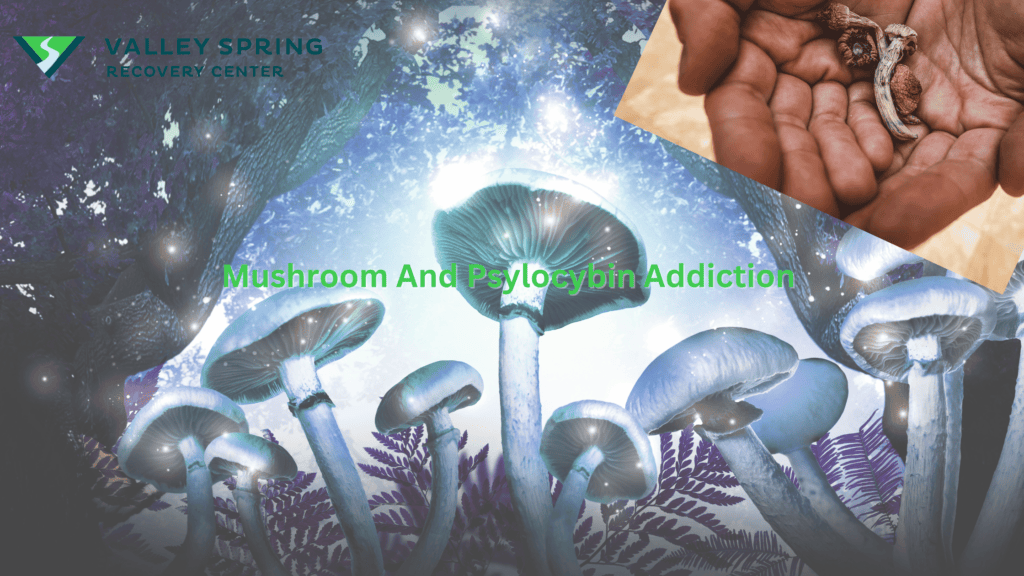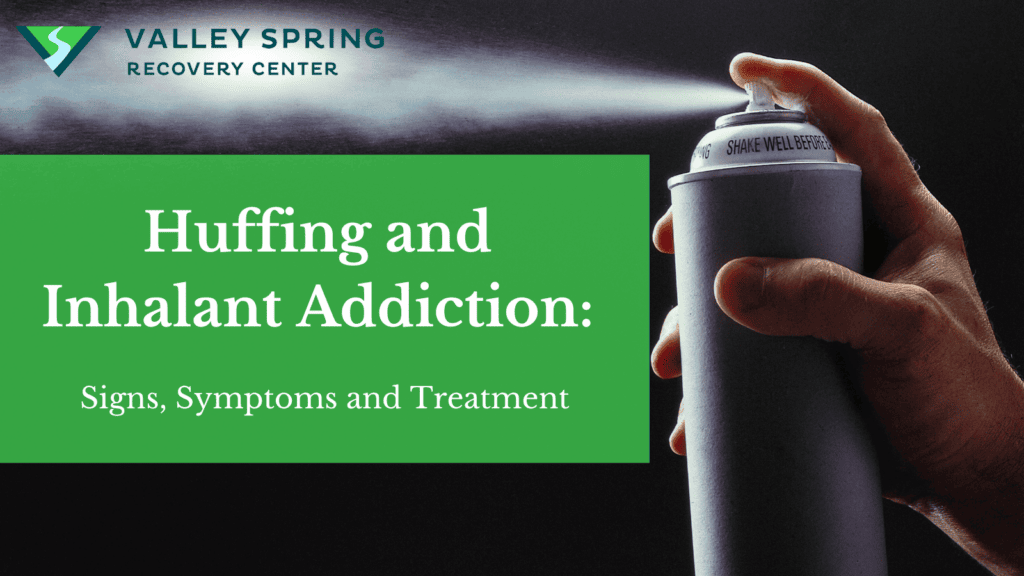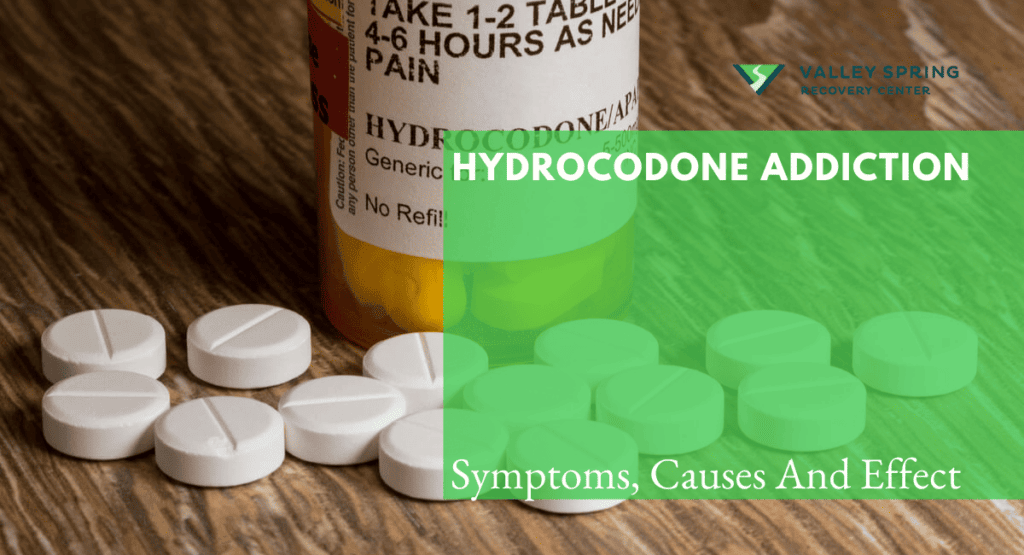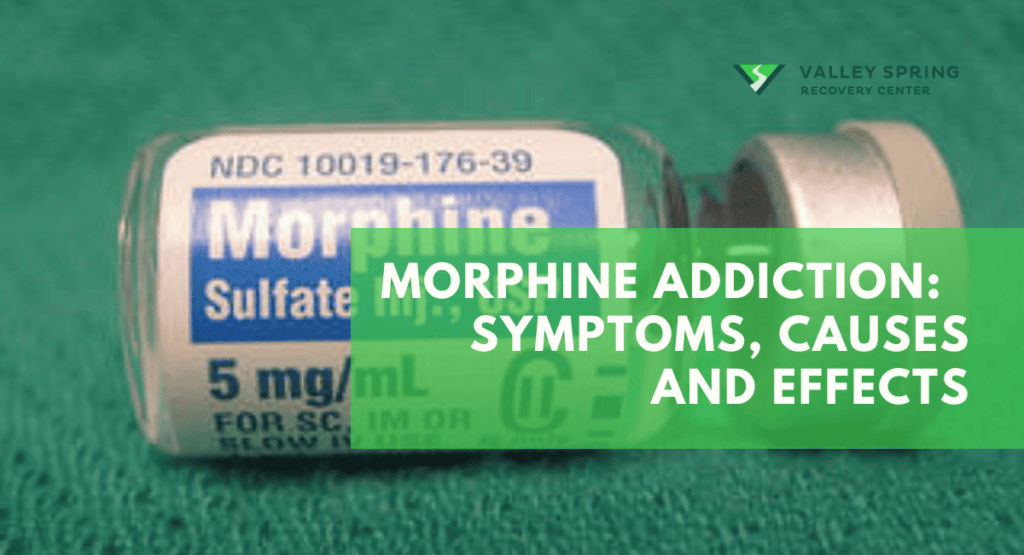Psilocybin mushrooms, also known as magic mushrooms, contain the psychoactive compound psilocybin, which induces hallucinogenic effects. These fungi have been used for centuries in various cultural and spiritual contexts, and they are currently being studied for their potential therapeutic benefits.
Types of mushrooms include Psilocybe cubensis, known for its versatility and wide availability, and Psilocybe semilanceata, or “Liberty Caps,” noted for their natural abundance and potency. Other notable types are Psilocybe azurescens, recognized for their strength, and Psilocybe mexicana, famous for their historical use in Central American spiritual rituals.
Symptoms experienced from ingesting these mushrooms can vary widely but often include visual and auditory hallucinations, altered perception of time and space, euphoria, and introspection. Physical effects may include nausea, pupil dilation, and increased heart rate.
The effects of psilocybin mushrooms can range from enlightening spiritual experiences to challenging psychological journeys. Research indicates potential therapeutic effects, such as reducing depression and anxiety, aiding in the treatment of addiction, and providing relief from the existential anxiety associated with terminal illness.
Treatment for misuse or addiction to psilocybin mushrooms, while less common than other substances, focuses on psychological support and therapy. This includes cognitive-behavioral therapy, which helps individuals understand and change their thought patterns and behaviors related to substance use. Since psilocybin is not considered physically addictive, treatment is primarily aimed at addressing the psychological aspects of its use.
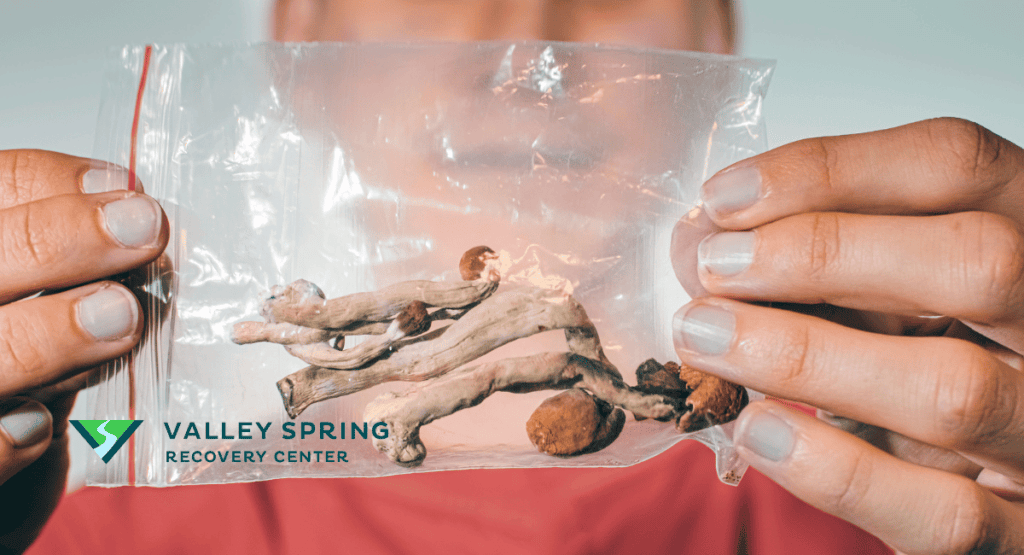
What Are Hallucinogenic and Psychedelic Mushrooms?
Mushroom addiction refers to the compulsive and harmful pattern of using hallucinogenic mushrooms that contain psilocybin. Habitually taking psilocybin mushrooms can lead to physical, psychological, and social problems. A 2019 study by Grant, Jon E et al. revealed young adults who use hallucinogens have problems with a range of addictive substances and unhealthy behaviors as well as elevated impulsivity (Addictive behaviors reports vol. 10).
Over 30 million individuals aged 12 or older, representing 8.5% of the population, have used psilocybin mushrooms in their lifetime according to a study by Krebs, Teri S, and Pål-Ørjan Johansen published in Mar. 2013.
Psilocybin mushrooms are obtained through wild harvesting in certain environments or cultivated at home using spore prints or syringes. They can also be obtained in underground markets, but using or possessing them may be illegal and risky depending on the state.
When you consume psilocybin, it interacts with your brain’s serotonin receptors. This interaction can lead to a range of effects, like altered perception, changes in mood, and, in some cases, hallucinations. It’s important to note that the exact mechanisms are still being studied, but this is the general idea of how it works in the brain.
What are the signs and symptoms of psychoactive mushroom use?
The use of psychoactive mushrooms, primarily containing psilocybin, can lead to a range of signs and symptoms due to their psychedelic effects. These can vary based on dosage, individual sensitivity, and the environment in which they are consumed. Common signs and symptoms include:
- Psychological Effects:
- Altered perception of time and space.
- Enhanced sensory experiences, such as brighter colors and sharper sounds.
- Hallucinations, both visual and auditory.
- Euphoria or a sense of well-being.
- Introspective experiences, which can sometimes be spiritual or profound.
- Changes in thought patterns, possibly leading to new insights or perspectives.
- Increased emotional sensitivity, which can include both positive and negative emotions.
- Anxiety or paranoia, particularly in unfamiliar or uncomfortable settings.
- Physical Effects:
- Pupil dilation.
- Increased heart rate and blood pressure.
- Nausea and gastrointestinal discomfort.
- Dizziness or lightheadedness.
- Uncoordinated movements.
- Increased body temperature, sweating, or chills.
- After Effects:
- Altered mood and perceptions, which can last for days after use.
- A sense of mental clarity or increased creativity, commonly reported post-experience.
- In some cases, users may experience what’s known as “psychedelic hangover,” which can include fatigue and a sense of disorientation.
It’s important to note that the experience of consuming psychoactive mushrooms can be unpredictable and varies greatly between individuals. Factors like the mushroom species, the setting, and the user’s mental state can significantly influence the nature of the experience. Additionally, while many users report positive and insightful experiences, there is a risk of experiencing frightening or distressing hallucinations, known as a “bad trip.”

What Are The Negative Effects Of taking Psilocybin Mushrooms Like Penis Envy?
The negative effects of psychoactive mushroom use containing psilocybin according to the European Monitoring Centre for Drugs and Drug Addiction (EMCDDA) are listed below:
- Craving: You might feel a strong desire or urge to use mushrooms, thinking about them frequently.
- Loss of Control: You might find it hard to control your mushroom use, often using more or for longer than intended.
- Neglect of Responsibilities: Mushroom use might lead to neglecting important work, school, or home duties.
- Withdrawal Symptoms: When you’re not using mushrooms, you might experience mood swings, irritability, and anxiety.
- Tolerance: Over time, you may need higher doses to achieve the same effects, or you might notice that the same amount has a reduced impact.
- Escalation: You may gradually increase your mushroom use over time.
- Continued Use Despite Harm: You keep using mushrooms even though you’re aware they’re causing physical or mental problems.
- Failed Attempts to Quit: Despite your efforts, you find it challenging to cut down or control your mushroom use.
- Loss of Interest: You may have lost interest in activities you once enjoyed because mushroom use takes precedence.
- Isolation: You might be spending less time with friends and family as you prefer using mushrooms.
- Legal and Financial Issues: Mushroom use may have led to legal troubles or financial difficulties.
- Health Problems: You might be experiencing physical or mental health issues due to mushroom use.
It’s important to understand that the type of mushroom consumed will vary the effects as well as the amount taken. For instance, psilocybin found in dried mushrooms is ten times (10x) higher than the amount found in fresh ones according to EMCDDA. If you recognize these signs in your own life or in someone you care about, seeking help from a healthcare provider or addiction specialist is a good step to address the issue and explore treatment options.
How do magic mushrooms affect the brain?
Mushrooms that contain psilocybin produce a euphoric high that can be enjoyable for certain personality types. The euphoric and sometimes psychedelic feelings produced from ingesting mushrooms spike the brain’s reward system, causing users to want to continue taking them. Mushrooms aren’t as physically addictive as other forms of drugs but it is not uncommon for individuals to want to continue taking them. However, there are some factors that can lead to habitual use or psychological dependence on them:
- Psychoactive Effects: Psilocybin-containing mushrooms can produce profound alterations in perception, mood, and consciousness. Some individuals may find these experiences pleasurable and may be drawn to using mushrooms repeatedly to recreate those effects.
- Psychological Dependency: While mushrooms are not typically associated with physical dependence, some individuals can develop psychological dependency. This occurs when the desire to use mushrooms becomes a habitual coping mechanism for dealing with stress, emotional issues, or life challenges.
- Tolerance: With regular use, tolerance to the effects of psilocybin can develop, requiring higher doses to achieve the desired effects. This can lead to increased mushroom consumption, potentially contributing to dependence.
- Habit Formation: Routine use of any substance, including mushrooms, can lead to habit formation. Individuals may develop a habit of using mushrooms in specific situations or as part of certain rituals.
- Social and Peer Influence: Social factors, including peer pressure or the influence of a social group that uses mushrooms, can contribute to habitual use and dependence.
- Escalation: As tolerance develops, some individuals may escalate their mushroom use to maintain the same level of effects, potentially leading to a cycle of increased consumption.
Mushrooms aren’t as addictive as other substances like heroin, alcohol, PCP, or cocaine. However, any pattern of substance use that interferes with your daily life, responsibilities, or well-being should be taken seriously.
If you or a loved one are concerned about the usage of mushrooms or believe you may be developing a dependence, quickly seek professional help from a healthcare provider or addiction specialist.
What types of mushrooms contain psilocybin?
Psilocybin mushrooms vary widely in potency and effects, with popular strains like Psilocybe cubensis offering unique experiences, from golden caps with shamanistic effects to the most potent varieties found in nature and used in spiritual rituals.
- Psilocybe cubensis: This is one of the most common and widely known psychedelic mushrooms. Within this species, there are several strains, each with unique characteristics:
- Golden Teacher: Known for its golden caps and shamanistic or insightful effects.
- Penis Envy: Recognized for its unique phallic shape, it’s reputed to be one of the most potent Psilocybe cubensis strains.
- Psilocybe Semilanceata: Also known as “Liberty Caps,” these are potent and commonly found in nature.
- Psilocybe Azurescens: Known for being one of the strongest psilocybin mushrooms, these are typically found in the Pacific Northwest of the United States.
- Psilocybe Cyanescens: Commonly referred to as “Wavy Caps” due to the rippled shape of their caps.
- Psilocybe Mexicana: Famous for its use in native Central American spiritual rituals, this strain is known for producing sclerotia or “magic truffles.”
Each of these mushroom types offers a distinct psychedelic experience, influenced by their varying concentrations of psilocybin and psilocin. The potency and effects can significantly differ among these strains, impacting the intensity and nature of the psychedelic experience.
Do different types of magic mushrooms illicit a different high feeling?
Yes, different types of psychedelic mushrooms can elicit varying experiences or “high” feelings, primarily due to differences in their psilocybin and psilocin content, as well as other psychoactive compounds present. The variations in the psychedelic experience can be influenced by several factors:
- Potency: Different strains have varying levels of psilocybin and psilocin, which directly influence their strength and the intensity of the psychedelic experience. For example, strains like Psilocybe azurescens are known for their high potency.
- Psychoactive Profile: The balance of psychoactive compounds can vary between mushroom types, leading to different effects. Some might produce a more introspective or spiritual experience, while others might lead to enhanced visual hallucinations or a heightened sense of euphoria.
- Dosage: The amount consumed also plays a crucial role in the type of experience. Higher doses generally lead to more intense and potentially profound experiences.
- Individual Physiology and Psychology: The user’s mental state, expectations, and physical condition can significantly impact the experience.
- Setting: The environment in which the mushrooms are consumed can influence the nature of the high. A calm, comfortable setting might lead to a more positive and introspective experience than a chaotic or unfamiliar environment.
- Subjective Experience: Each individual may react differently to the same type of mushroom, leading to a subjective and unique experience.
We spoke with several individuals who wished to remain anonymous for this article that regularly consumed psychedelic mushrooms and they relayed the following experience with taking different strands of mushrooms:
The golden teacher mushrooms gave me a happy high feeling where I would get more talkative whereas penis envy made me have more visual effects where everything looked wavy and I felt like trees and nature was a live.
Anonymous Mushrooms user
What Are The Risk Factors Of Taking Mushrooms?
Prolonged use of psilocybin mushrooms can result in adverse consequences that have physical, mental, emotional and life consequences. However, not everyone who uses mushrooms will experience these effects.
- Physical Effects:
- Tolerance: Over time, you might need to take larger amounts of mushrooms to feel the same effects you used to get with smaller doses.
- Withdrawal Symptoms: When you’re not using mushrooms, you could experience mood swings, irritability, and anxiety.
- Mental and Emotional Effects:
- Craving: You might have strong urges to use mushrooms, often thinking about them.
- Loss of Control: It can become difficult to control how much you use, even if you want to cut down.
- Neglecting Responsibilities: You could find yourself missing important work or personal duties because of mushroom use.
- Mood Changes: Your mood might become unpredictable, and you could experience periods of anxiety and depression.
- Isolation: You may spend less time with friends and family because you’d rather use mushrooms.
- Life Consequences:
- Financial and Legal Issues: Addiction can lead to problems with money and even legal trouble, especially if mushroom use is illegal where you live.
- Impact on Interests: Activities you once enjoyed may lose their appeal because mushroom use becomes more important.
- Health Problems: There could be physical and mental health issues due to the addiction.
How do people consume psychadelic mushrooms?
Mushrooms are edible, meaning that the most common form of consumption is ingestion. Regardless of how you consume them, the effects can be devastating and detrimental to your overall health in the long run. Below are some of the ways people may consume mushrooms.
- Eating Them: Some people just eat the mushrooms as they are. They can be raw, dried, or even cooked into dishes. Some folks find creative ways to make them taste better.
- Making Tea: Another common method is to make mushroom tea. You take dried mushrooms, steep them in hot water like you would with regular tea, and then drink the liquid. Some people prefer this because it can be gentler on the stomach.
- Chewing and Swallowing: Some folks chew the mushrooms and then swallow them directly. Others might grind them into a powder and mix that with something to eat or drink.
- Capsules: In some places, you can find psilocybin capsules. They contain powdered mushrooms and make it easier to measure doses accurately.
- Microdosing: Microdosing is when people take very tiny amounts of psilocybin on a regular basis. The goal is not to trip but to potentially experience some therapeutic benefits without the full psychedelic experience.
- Dried and Smoked: Though less common and not recommended, a few people may try smoking dried mushrooms. However, this method is not typically recommended due to potential health risks.
Mushrooms take effect about 30 minutes after they are ingested.
A very adaptable drug, Psilocybin mushrooms can be chopped up into food, or eaten on its own.
Because of their bitterness, though, many mushroom users tend to cook the drug with other foods or spread peanut butter or honey over the shrooms if eaten alone.
Psilocybin mushroom effects usually last between 3-6 hours and can cause varying effects such as hallucinations, detachment from the body, anxiety, and fear.
What are the Treatment Options for Mushroom Addiction?

Treatment options for mushroom addiction, specifically addiction to psilocybin-containing mushrooms, are similar to those for other substance use disorders. The goal of treatment is to help individuals overcome addiction, manage cravings, and address any underlying psychological or behavioral issues. Here are some common treatment options:
- Detoxification: If you decide to stop using mushrooms, a supervised detox can help manage any mild withdrawal symptoms or discomfort.
- Counseling and Therapy: This is a big part of treatment. You’ll work with a therapist or counselor who can help you understand why you use mushrooms and develop strategies to overcome addiction. There are different types of therapy, and they include:
- Cognitive-behavioral therapy (CBT): Helps individuals identify and change negative thought patterns and behaviors related to drug use.
- Motivational interviewing (MI): Aims to enhance an individual’s motivation to change and commit to treatment.
- Individual counseling: Provides one-on-one support and guidance for overcoming addiction.
- Group therapy: Allows individuals to share their experiences, gain support from peers, and learn from others facing similar challenges.
- Support Groups: Think of support groups as a community of people who’ve been through similar experiences. They can offer understanding, encouragement, and advice on your journey to recovery.
- Psychedelic-assisted therapy: In some cases, supervised psychedelic therapy using substances like psilocybin may be used as part of your treatment: (NCBI).
- Dual diagnosis treatment: If you’re also dealing with mental health issues, treatment will address those alongside addiction.
- Holistic approaches: You might explore complementary therapies like mindfulness, yoga, and nutrition to support your recovery.
- Family involvement: If it makes sense for your situation, involving your family in therapy can be beneficial.
- Relapse prevention: You’ll learn how to recognize and manage triggers that could lead to a relapse. You’ll also learn some of the signs, causes, and effects of relapse.
- Matrix Model: The matrix model is a form of treatment that lasts for 16 weeks and involves intensive therapy in an individual, group and family setting.
Remember, the best treatment plan is one that’s tailored to your unique needs. Seeking help from professionals who specialize in addiction is a crucial step, and you won’t be going through this journey alone. Your recovery will be supported by healthcare experts, fellow individuals in recovery, and the people who care about you.
How Does the Matrix Model Help in Treating Mushroom Addiction?
The Matrix Model is a comprehensive program that combines various treatment elements such as cognitive-behavioral therapy, family education, individual counseling, and relapse prevention. The matrix model approach to addiction treatment is effective in treating Mushroom addiction by addressing both the behavioral and psychological aspects of the disorder.
MUSHROOM OUTPATIENT REHAB
The withdrawal process can be long and difficult, especially for someone who hasn’t yet recovered from a drug. Therefore, in our opinion it is best to recover from mushrooms in a controlled rehabilitation center’s environment.
Some outpatients will be able to monitor their own detox and rehabilitation from mushroom addiction without the continual attention that is given to an inpatient. If you choose to be an outpatient, be certain you have all pertinent information regarding your rehabilitation center, and your counselor/advisor in case you encounter difficulties with your rehab.
THE PROCESS FOR MUSHROOM REHAB
Along with the mental and emotional toll addiction can take on a person, drug addiction can lead to extreme weight gain or loss, illness, injury or other physical ailments.
Along with fighting addiction, rehabilitation can include getting back into good physical health. Many of our programs offer exercise activities, including stretching and yoga.
Along with the physical aspect of recovery, our programs also address the mental toll addiction can take on a patient.
Part of our treatment involves learning how to maintain sobriety as life’s stressful situations, like birthdays and holidays come at you. We delve deep to find the potential stressors or triggers that could lead to relapse. Our treatment professionals get to the root causes of substance use and help you identify usage patterns.
Because mushrooms use has spread across all strata of society; our recovery programs are designed to fit the needs of each patient’s situation.
THE LENGTH OF MUSHROOM TREATMENT
Your rehabilitation is all about reducing the likelihood of using mushrooms again.
Along with getting clean, you still need to address your emotional, mental, and physical health, so you can stay sober.
Improving your overall health can sometimes require extended counseling sessions.
Because every situation is different, the treatment will vary in length from person to person. Some people may only require a few days of treatment while others may require moths or more.
Every patient is different.
What Is The History Of Psylocybin Containing Mushrooms?
Experts state that the drug’s thousands-year-old history means that it was popular in many Native American religious ceremonies.
For instance, the Aztecs were frequent users of mushrooms, particularly during religious rituals.
Mushrooms are known by the street names magic mushrooms, shrooms, mushies, psychedelic mushrooms, psychotropic mushrooms or psilocybin, these mushrooms have never been known for their taste as they can come off extremely bitter.
These are the mushrooms that cause a person to “trip out,” through alterations of mood, perception and behavior.
HOW Do MUSHROOMS WORK?
Depending upon the need, mushrooms can be quite useful.
Mushroom are a fungus that are often mistaken for a plant. They grows from a spore that can be found in dirt or on decaying plants.
Typically, mushrooms are found growing in the humid shade of a fallen tree, tree branch or log.
Some variety of mushrooms contain nutrients, and can be used as a food source that gives off an earthy flavor. Pizza, risotto, salads and omelets are typical dishes in which you might find mushrooms based on flavor.
Mushrooms based on hallucinogens don’t grow much differently than the mushrooms on your double cheeseburger.
The mushrooms that cause a person to trip belong to the genus group Psilocybe.
These types of mushrooms cause hallucinations because they contain the psychotropic tryptamines psilocybin and psilocin.
Typically, a user hallucinates after taking these types of shrooms. Perception becomes more intense, dimensions expand and contract, and light trails occur, in which a single light source fans off a tail, much like a comet in outer space.
Mushrooms, like other hallucinogens, can also lead to bad trips. As with any hallucinogen, a person has to be calm and unexcitable to withstand the good and bad effects of mushrooms.
What Is The Legal Status Of Psylocybin Mushrooms In The United States?
The 1950s and 1960s saw a dramatic uptick in drug testing by the US government. Of particular interest were mescaline, LSD and mushrooms.
However, damage from these substances was so extensive, instead of researching them more, especially in lieu of their ill-effects, the government hastily decided to ban the drugs.
Other research, however, shows that the mental health industry has long been interested in how drugs like mushrooms can help someone in treatment.
Nonetheless, the use of a mind-altering drug for apparent personal growth and/or mental treatment carries great risk, such as negative experiences with lasting repercussions.
Keep in mind there are also the risks of dependence, injury and acceptance of hallucinated concepts as one’s own reality.
HOW ADDICTING ARE MUSHROOMS?
For the most part, mushrooms are a natural hallucinogen with low toxicity and low physical dependence.
At the same time, the hallucinogen’s physical withdrawal symptoms are near nonexistent even after continued use. Sure, there is the possibility one can get hooked on shrooms psychologically, but a physical addiction is rare at best.
WHAT ARE THE LASTING EFFECTS OF MUSHROOM USE?
While a 4 to 6-hour trip is not unusual to someone who occasionally takes mushrooms, for the committed user of the drug, long-term use can permanently alter their brain.
Be that as it may, few permanent effects are recognized with mushroom use.
In the event of a bad trip, it’s been found that those who have preexisting psychotic reactions to mushrooms or other hallucinogens may also have preexisting mental illness that may or may not have been diagnosed.
In this case, the psychotic experience may have permanent effects on the user, which can be recognized as panic attacks, anxiety and paranoia.
To that end, a complete psychotic episode of audio or visual hallucinations will occur with use of the drug, but may continue in users with additional mental illness.
Some users report long-term, even some permanent, effects of using mushrooms including increased memory and insight.
Others report flashbacks, which are occasions of hallucinogenic recurrence that can be similar to the high of mushrooms.
Of course, these are random experiences and few have been substantiated as having been caused by use of mushrooms.
Nonetheless, even if mushrooms are not physically addictive, the potential for psychological addiction, or even psychological damage from shrooms or other hallucinogens may force a user to seek out other more potent drugs that are addictive.
This needs to be kept in mind as anything that is a stimulant or depressant can quite quickly follow on the heels of mushrooms.
It is then that we have to be truly concerned.
Are there benefits to using mushrooms?
Psilocybin-containing mushrooms have been studied for potential therapeutic benefits in recent years. Some research suggests that when used under controlled and supervised conditions, psilocybin may have a range of positive effects (SCIENCE DIRECT), including:
- Psychological Insights: Psilocybin can induce altered states of consciousness that may lead to profound self-reflection and insights into one’s life, behavior, and thought patterns.
- Treatment of Mental Health Conditions: Some studies have shown promise in using psilocybin-assisted therapy to treat conditions such as depression, anxiety, PTSD, and addiction. It’s important to note that this is typically done in a controlled clinical setting with professional guidance.
- Enhanced Creativity: Some individuals report heightened creativity and problem-solving abilities during or after a psychedelic experience.
- Spiritual or Mystical Experiences: Psilocybin has been associated with experiences described as spiritual or mystical, which some people find personally meaningful and transformative.
- Reduced Anxiety and Existential Distress: Psilocybin has shown potential in helping individuals with terminal illnesses cope with anxiety and existential distress, providing a sense of peace and acceptance.
- Improved Mood and Well-Being: Some users report improved mood, increased well-being, and a greater sense of connection to others and the world.
It’s crucial to emphasize that while there is ongoing research into these potential benefits, the use of psilocybin-containing mushrooms carries risks, especially when used outside of controlled clinical settings or without professional guidance. The effects can be unpredictable, and negative experiences, including anxiety, paranoia, and hallucinogen-persisting perception disorder (HPPD), can occur.
Furthermore, the legal status of psilocybin-containing mushrooms varies widely around the world, and their use may be illegal in many places. They’re mostly illegal in the US. (Scientific American).
What is the difference between mushrooms and other psychedelics?
Mushrooms, specifically psilocybin-containing mushrooms, are one category of psychedelic substances, and they have distinct differences when compared to other psychedelics. Here are some key differences:
- Natural vs. Synthetic: Psilocybin-containing mushrooms are naturally occurring, meaning they grow in the wild. Other psychedelics, such as LSD (lysergic acid diethylamide) or MDMA (3,4-methylenedioxymethamphetamine), are synthetic and manufactured in laboratories.
- Active Compounds: Psilocybin mushrooms contain primarily psilocybin and psilocin as their active compounds. These substances interact with serotonin receptors in the brain. In contrast, other psychedelics have different chemical structures and mechanisms of action.
- Duration of Effects: The duration of a psychedelic experience can vary between substances. Psilocybin mushrooms typically produce effects that last around 4 to 6 hours, while other psychedelics like LSD can have effects that last 8 to 12 hours or longer.
- Source and Legality: The legality of these substances varies significantly. Many countries and regions have specific laws regarding psilocybin-containing mushrooms, and their status can range from legal to decriminalized to illegal. Other synthetic psychedelics also have diverse legal statuses worldwide.
- Cultural and Historical Context: Psilocybin mushrooms have been used in indigenous and cultural rituals for centuries, primarily in Mesoamerica and other regions. Other psychedelics like LSD and MDMA have shorter histories of use and are not tied to specific traditional practices.
- Chemical Composition: Psilocybin-containing mushrooms have a relatively simple chemical composition compared to some synthetic psychedelics. The variability in mushroom potency depends on factors like species and growing conditions. In contrast, synthetic psychedelics are precisely manufactured with consistent dosages.
- Physical and Psychological Effects: While there are commonalities in the psychedelic experience, different substances can produce varying physical and psychological effects. The nature and intensity of visuals, emotional states, and cognitive changes can differ.
While mushrooms are natural and result in fewer health complications than synthetic psychedelics, they have the propensity to lead you into addiction. The effects of all psychedelics are unpredictable and, as such, should be approached with caution and responsibility or used under supervised guidance.
How long does it take to detox from mushroom Addiction?
Mushrooms do not have strong physical withdrawal symptoms making detox symptoms for psychological than physical. Unlike some other substances like cocaine, marijuana, Klonopin, etc., psilocybin-containing mushrooms are not typically associated with severe physical withdrawal symptoms. However, psychological symptoms and cravings can still occur which can be equated to that of stopping a bad habit.
How is psilocybin used for therapeutic purposes?
Psilocybin, the psychoactive compound in “magic” mushrooms, has been the subject of renewed scientific interest due to its potential therapeutic applications according to Ziff, Shawn et al’s 2022 study on “Analysis of Psilocybin-Assisted Therapy. Historically used in various cultures for spiritual and medicinal purposes, psilocybin’s classification as a Schedule I substance halted significant research for many years. However, recent clinical trials have shown promising results in treating addiction, depression, and mood disorders related to end-of-life care.
Mechanism of Action:
Psilocybin acts as a serotonin agonist, particularly affecting the 5HT-2A receptors. This action is thought to contribute to its therapeutic effects. Psilocybin is metabolized into psilocin, which can cross the blood-brain barrier, influencing serotonin pathways and potentially affecting the dopaminergic and corticotropin-releasing hormone pathways as well. This activity can alter mood, perception, and cognitive processes, providing potential therapeutic benefits.
Use in Addiction Treatment:
Clinical trials have demonstrated psilocybin’s promise in treating substance use disorders, particularly nicotine and alcohol dependence. Its low toxicity and abuse potential make it an attractive treatment psychedelic therapy option. Studies have shown that even a few administrations of psilocybin can produce long-lasting effects, surpassing traditional therapies in effectiveness. For example, in smoking cessation, psilocybin-assisted therapy showed a significantly higher abstinence rate compared to conventional treatments according to a 2017 study on Psilocybin for treating substance use disorders by de Veen BT, Schellekens AF, Verheij MM, Homberg JR.
Use in Major Depression:
Psilocybin has also been researched as a treatment for major depressive disorder. Trials comparing psilocybin to selective serotonin reuptake inhibitors (SSRIs) have found no significant difference in their effectiveness, indicating psilocybin’s potential as a viable alternative. Unlike SSRIs, psilocybin therapy does not require daily dosing, and its effects can be long-lasting after just a few sessions.
Use in Cancer/End-of-Life Mood Disorders:
Patients with terminal diagnoses, such as cancer, often experience severe mood disorders. Psilocybin has shown potential in reducing depression and anxiety in these patients, providing a better quality of life. Studies have indicated that even a single session can lead to significant and sustained mood improvements.
Challenges and Considerations:
Despite these promising findings, researching psilocybin poses unique challenges, such as the difficulty of double-blinding and the influence of set and setting on the patient’s experience. Additionally, the complex legal status of psilocybin and its classification as a Schedule I drug complicates research efforts.
In conclusion, psilocybin presents a promising therapeutic option for treating various psychiatric conditions, offering potential benefits where traditional treatments fall short. However, further research is necessary to fully understand its mechanisms and to optimize its use in clinical settings and it is also has a high likelihood of abuse.
What are the slang names for psychedelic mushrooms?
Psychedelic mushrooms are commonly referred to by a variety of slang terms, including “magic mushrooms,” “shrooms,” “boomers,” and “caps.” These names often reflect the mushrooms’ psychoactive effects or their appearance.
For more information on slang names for hallucinogenic drugs, read our guide.
How do psychedelic mushrooms differ from other hallucinogens like LSD?
Psychedelic mushrooms primarily contain psilocybin, a naturally occurring compound that is metabolized into psilocin, inducing psychedelic effects. Unlike synthetic hallucinogens such as LSD, psychedelic mushrooms are natural and have a long history of use in spiritual and religious rituals. The effects of mushrooms can vary greatly depending on the dose, type, and individual user, offering a distinct experience compared to other hallucinogens.
Can you grow psychedelic mushrooms at home?
It is possible to grow psychedelic mushrooms at home using spore syringes and a sterile substrate. However, it’s important to note that in many countries, the cultivation and possession of psilocybin mushrooms are illegal, and doing so could result in legal consequences. Additionally, cultivating mushrooms requires specific conditions of humidity, temperature, and cleanliness to avoid contamination and ensure successful growth.
What is the legal status of psychedelic mushrooms around the world?
The legal status of psychedelic mushrooms varies significantly by country and, in some cases, within regions of countries. For example, in the Netherlands, “magic truffles” (which contain the same psychoactive compounds as magic mushrooms) are legal and sold in specialized shops, while the mushrooms themselves are banned. In contrast, countries like Jamaica and Brazil have more lenient laws regarding the possession and use of psychedelic mushrooms. However, in many parts of the world, including the United States, psilocybin mushrooms are classified as a controlled substance and are illegal to possess, cultivate, or distribute. States have different drug laws that govern them with oversight from the federal government which creates a grey area in some circumstances.
What research is being conducted on the therapeutic uses of psilocybin?
Recent years have seen a resurgence in research into the therapeutic potential of psilocybin, the active compound in psychedelic mushrooms. Studies are exploring its use in treating a range of conditions, including depression, anxiety, PTSD, and addiction to substances like alcohol and tobacco. Preliminary results have been promising, showing that psilocybin, in conjunction with therapy, can produce significant and lasting reductions in symptoms for some individuals. This research is contributing to a growing interest in the potential of psychedelics as tools for mental health treatment.
Sources
- Psychiatry & the psychedelic drugs. Past, present & future. Rucker JJ, Iliff J, Nutt DJ. Neuropharmacology. 2018;142:200–218.
- Mescaline use for 5700 years. Bruhn JG, De Smet PA, El-Seedi HR, Beck O. Lancet. 2002;359:1866.
- A prehistoric mural in Spain depicting neurotropic Psilocybe mushrooms. Akers BP, Francisco Ruiz J, Piper A, Ruck CA. Econ Bot. 2011;65:121–128.
- Role of psilocybin in the treatment of depression. Mahapatra A, Gupta R. Ther Adv Psychopharmacol. 2017;7:54–56.
- Psilocybin targets a common molecular mechanism for cognitive impairment and increased craving in alcoholism. Meinhardt MW, Pfarr S, Fouquet G, et al. Sci Adv. 2021;7:0.
- Psilocybin, a naturally occurring indoleamine compound, could be useful to prevent suicidal behaviors. Strumila R, Nobile B, Korsakova L, et al. Pharmaceuticals (Basel) 2021;14 [PMC free article] [PubMed] [Google Scholar]
- Psilocybin for treating substance use disorders? de Veen BT, Schellekens AF, Verheij MM, Homberg JR. Expert Rev Neurother. 2017;17:203–212. [PubMed] [Google Scholar]
- Stability of psilocybin and its four analogs in the biomass of the psychotropic mushroom Psilocybe cubensis. Gotvaldová K, Hájková K, Borovička J, Jurok R, Cihlářová P, Kuchař M. Drug Test Anal. 2021;13:439–446.
- https://www.emcdda.europa.eu/publications/drug-profiles/hallucinogenic-mushrooms_en
- https://www.ncbi.nlm.nih.gov/books/NBK424847/table/appd.t17/
- https://www.scientificamerican.com/article/restrictions-on-psilocybin-magic-mushrooms-are-easing-as-research-ramps-up/
- https://www.sciencedirect.com/science/article/pii/S0028390817306391
- https://www.ncbi.nlm.nih.gov/pmc/articles/PMC8901083/
- Grant, Jon E et al. “Hallucinogen Use is Associated with Mental Health and Addictive Problems and Impulsivity in University Students.” Addictive behaviors reports vol. 10 (2019): 100228. doi:10.1016/j.abrep.2019.1002
Dr. Michael Olla
All author postsShare This Post

